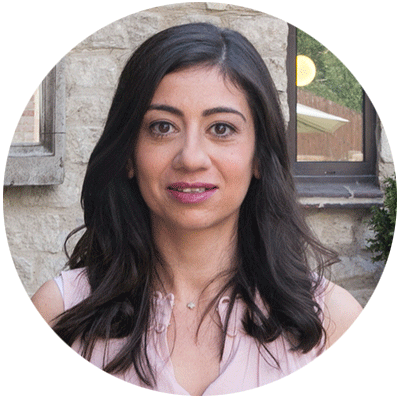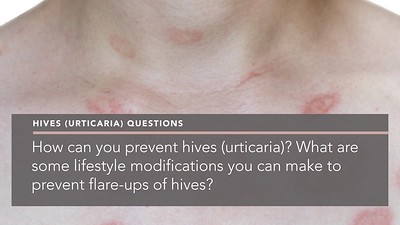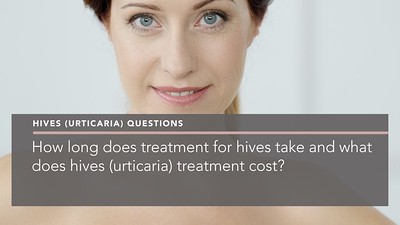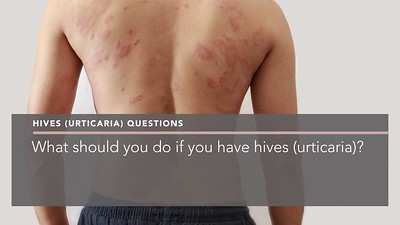Interview transcription:
In an interview, dermatologist Dr Penelope Pratsou explains the different treatment options for hives (urticaria) and which one is the best.
What are the different treatments for hives and which one is the best?
Penelope Pratsou: It’s important if you do have certain triggers that will bring on your hives that you avoid them.
There are several things that I can help with, and the most straightforward and most effective treatments for hives are antihistamines. A lot of people are aware of antihistamines; you can pick them up over the counter. Certain ones are a little bit better than others. One of the commonest tweaks that I might make is the dose of antihistamines. They’re quite safe to take in the long term, and they’re safe to take for hives in higher doses than what’s stated on the box in fact. So for hives, you would take them at least twice a day and sometimes up to four times a day. That simple tweak is enough sometimes to settle the problem.
Penelope Pratsou: If that wasn’t enough, then there are medications that we could add on to the antihistamines. There’s a simple and very safe medication called Montelukast which has been used a lot for asthma. We know it’s effective for hives as well. That can be a very effective treatment.
Beyond that, some people come having had a course, or lots of courses of steroid tablets and generally that’s not necessary. There are certain other tablets that we might choose to use that do come with the possibility of side effects.
We have a new, very good treatment option for chronic hives that are not responding to these other treatments. This tends to be in the form of an injection. It’s called Omalizumab, and it’s a very safe and well-tolerated treatment. Of course, it would be a matter of assessing you and knowing that that’s the right treatment for you, but there are lots of remedies that we can try.
If you notice that you have any of the symptoms or conditions that we’ve just discussed, we invite you to book a consultation with Dr Penelope Pratsou. She’ll be able to assess your condition and give you a personalised treatment plan.

About the author
Dr Penelope Pratsou | Consultant Dermatologist
MBChB, MRCP (UK) (Dermatology)
I’m Dr Penelope Pratsou, a skilled independent Consultant Dermatologist based in Berkshire. I have specialist expertise in the diagnosis and management of all skin cancers, and in performing mole checks. I’m a trained skin surgeon and remove skin cancers, moles, skin tags, cysts and warts.
I also have invaluable experience in dealing with all skin conditions, from the common skin complaints of acne, rosacea, eczema and psoriasis, to the rarer and more complex skin problems, having seen it all through years of NHS work.
After I obtained my Membership to the Royal College of Physicians, I undertook rigorous specialist training in dermatology, before being appointed as a Consultant Dermatologist at the Royal Berkshire Hospital, Reading. There, I helped set up and lead a busy clinic for the diagnosis and treatment of suspected skin cancer. I was also actively involved in supervising and training both dermatology and GP trainees.
Alongside my increasingly busy private practice, I have maintained an NHS practice in Oxford in order to continue to engage with challenging cases and to develop my specialist interest in skin allergy.




